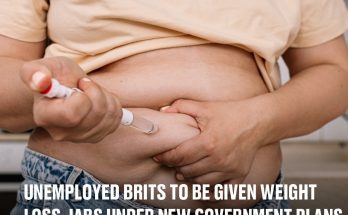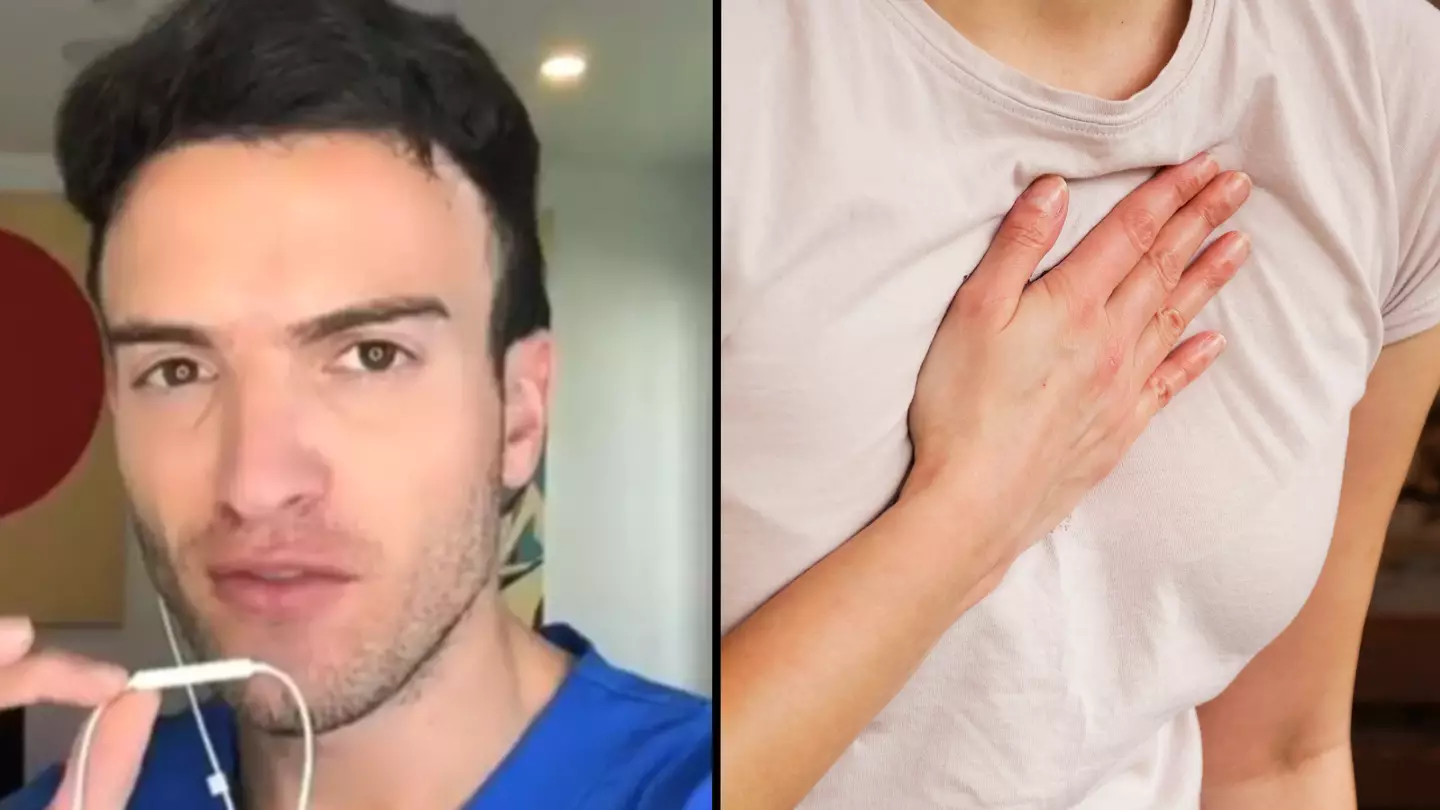
But before you take yourself to A&E, a doctor on TikTok has finally explained what they are and what it means for your health.
Even though it can be scary, not all chest pains require a trip to the emergency department, and those random pains many of us get sometimes are a lot more common than you think.
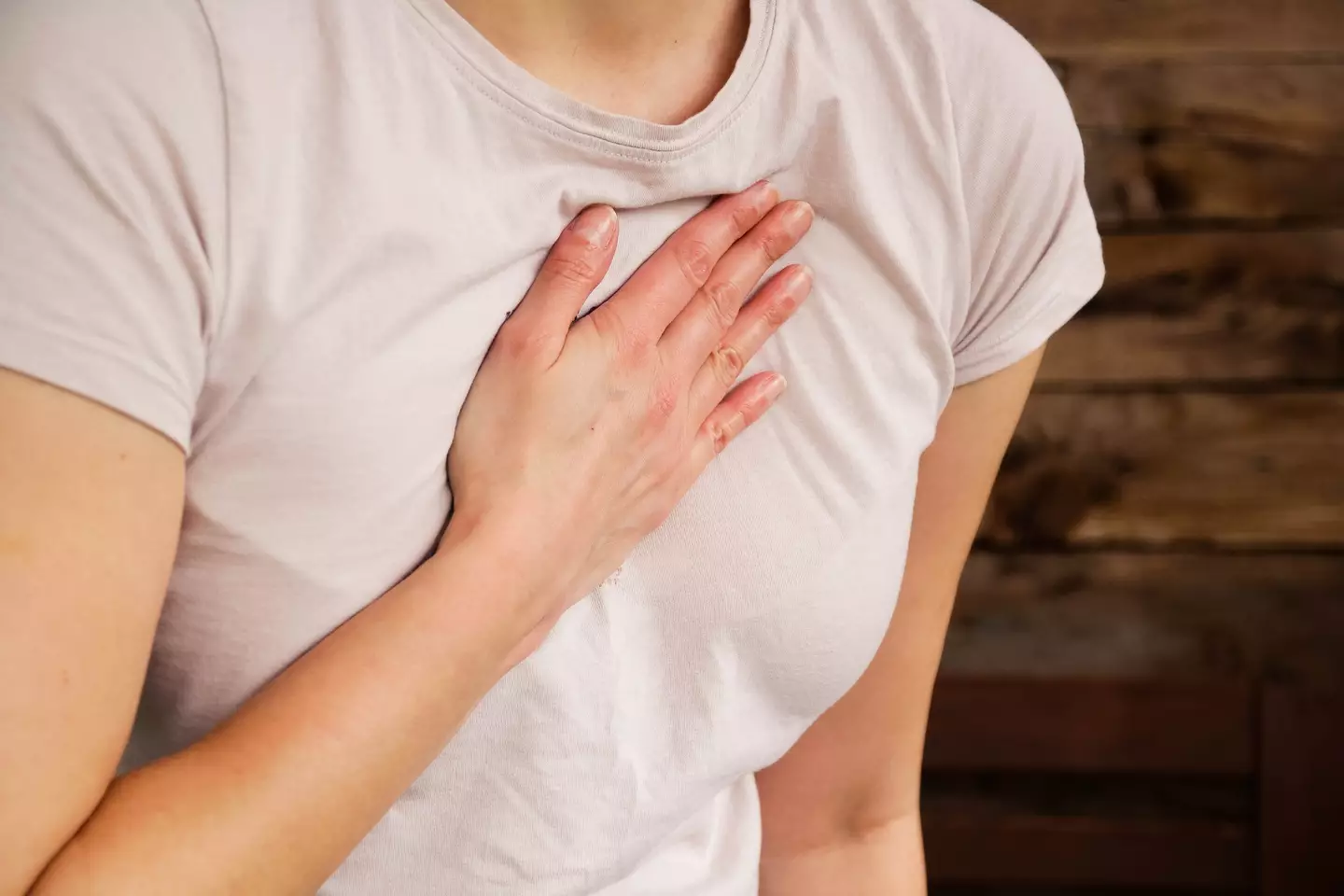
Chest pains aren’t always serious (Getty Stock Photo)
The Life Of A Doctor account on TikTok is fantastic at explaining health conditions and debunking myths.
This time, Doctor Fayez is getting real about how some chest pains are actually normal and shouldn’t be feared.
He explains in the video: “When you get that random chest pain every 6 months since you were a child where you feel a stabbing pain in your heart and have to breathe tiny breaths till it randomly goes away.”
Hands up if you’re one of those people!
Dr Fayez explained: “If you’ve ever had random chest pain, listen closely. Not all chest pain comes from the heart.
“In fact, one of the most common causes of chest pain is something known as pre-cordial catch syndrome.
“This is usually described as sudden onset sharp chest pain that’s located in this area. Now this pain lasts for a few seconds, two minutes and it’s worse with deep breathing.
“And this is believed to be due to a pinched nerve that runs across a chest wall and is not life threatening.”
TikTok users were taken aback by his explanation.
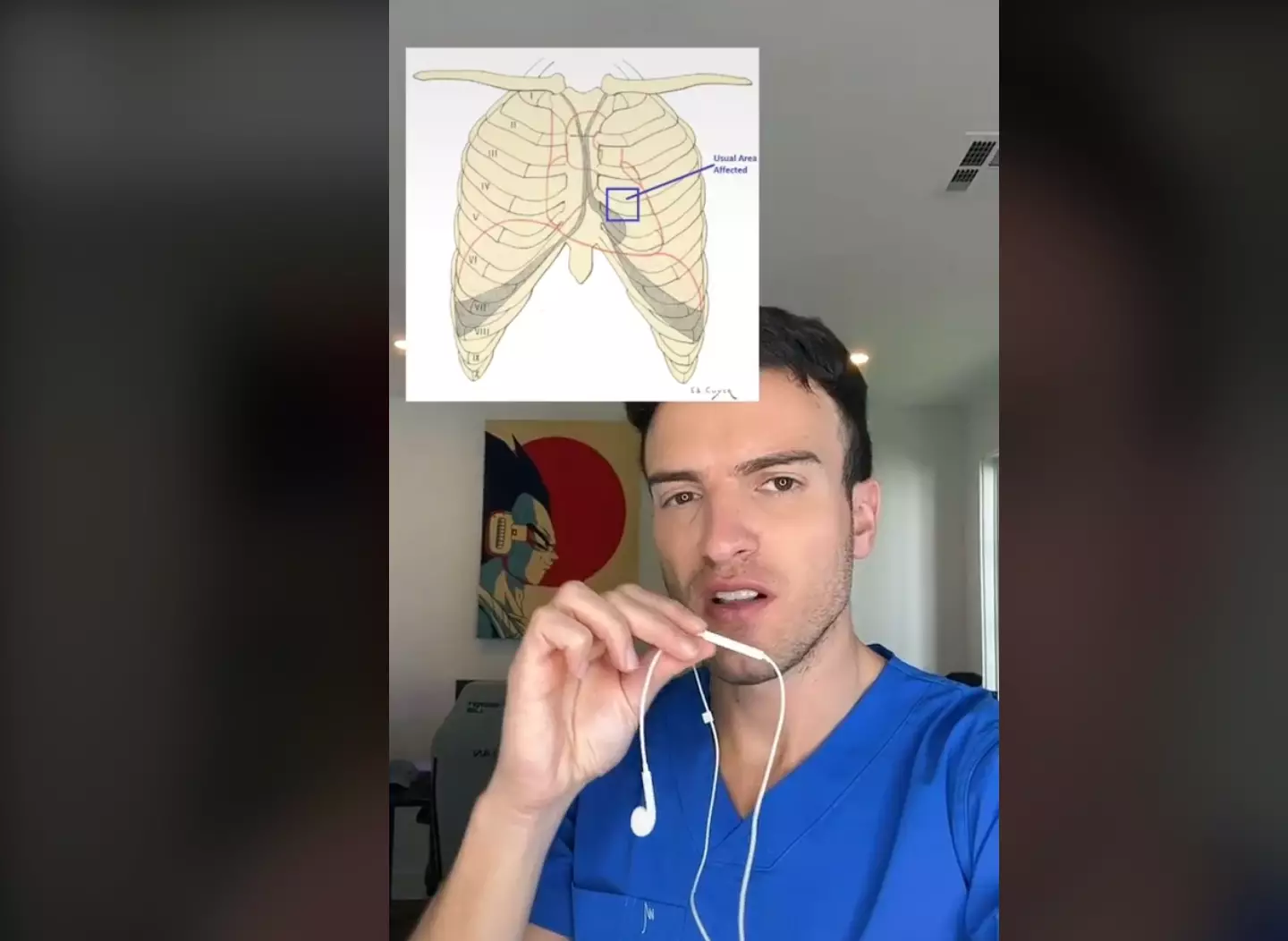
TikTok/Life Of A Doctor
One user commented: “The amount of time I thought I was getting a heart attack and thinking I am wayyy to young to go out this way lmao.”
Another said: “I thought I was dying for YEARS.”
“I honestly thought I was dying. Thanks bro,” wrote another.
One user even joked: “I’ll probably die from a heart attack because I think it’s a pinched nerve again.”
Of course, if your chest pains don’t go away, you should seek medical advice.
But that’s not all doctors are warning people about.
Now, it’s your urinary habits.
Pelvic Health Physical Therapist Dr. Rachel Peck took to TikTok to share what ‘happens to your bladder when you do a lot of just in case peeing’.
Peck said she sees a lot of people ‘who have increased urgency and frequency and sometimes leakage’.
She shared that: “When we get into the habit of always peeing just in case, we’re going when it’s not totally full.”
This tricks your brain into not storing as much urine.
While going to the loo ‘just in case’ might seem harmless, it’s only OK if done occasionally.
She said: “That would be once right before bed, right before a really long car trip, maybe right before you go into a movie theatre.”
If you’re making it a habit, it’s not going to go well.
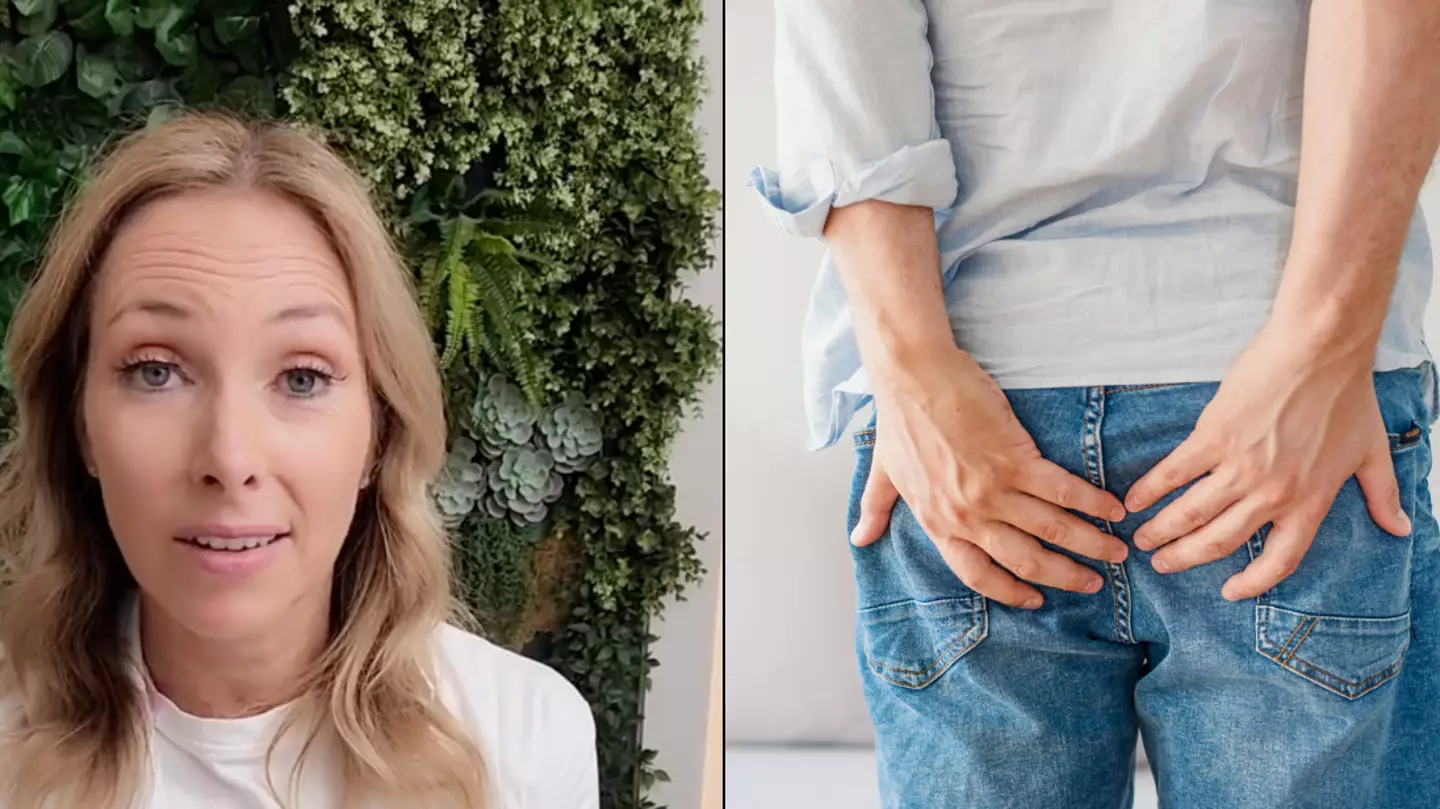
We’ve all done it at one time or another, and it’s usually the case when you don’t fancy taking a dump in a dirty public toilet.
When you’re out and in desperate need of a poo, the idea of waiting until you arrive in the comfort of your own home often sounds like the best solution at the time.
However, Dr Janine Bowring (j9naturally), from the US, has explained why you should never hold it in.
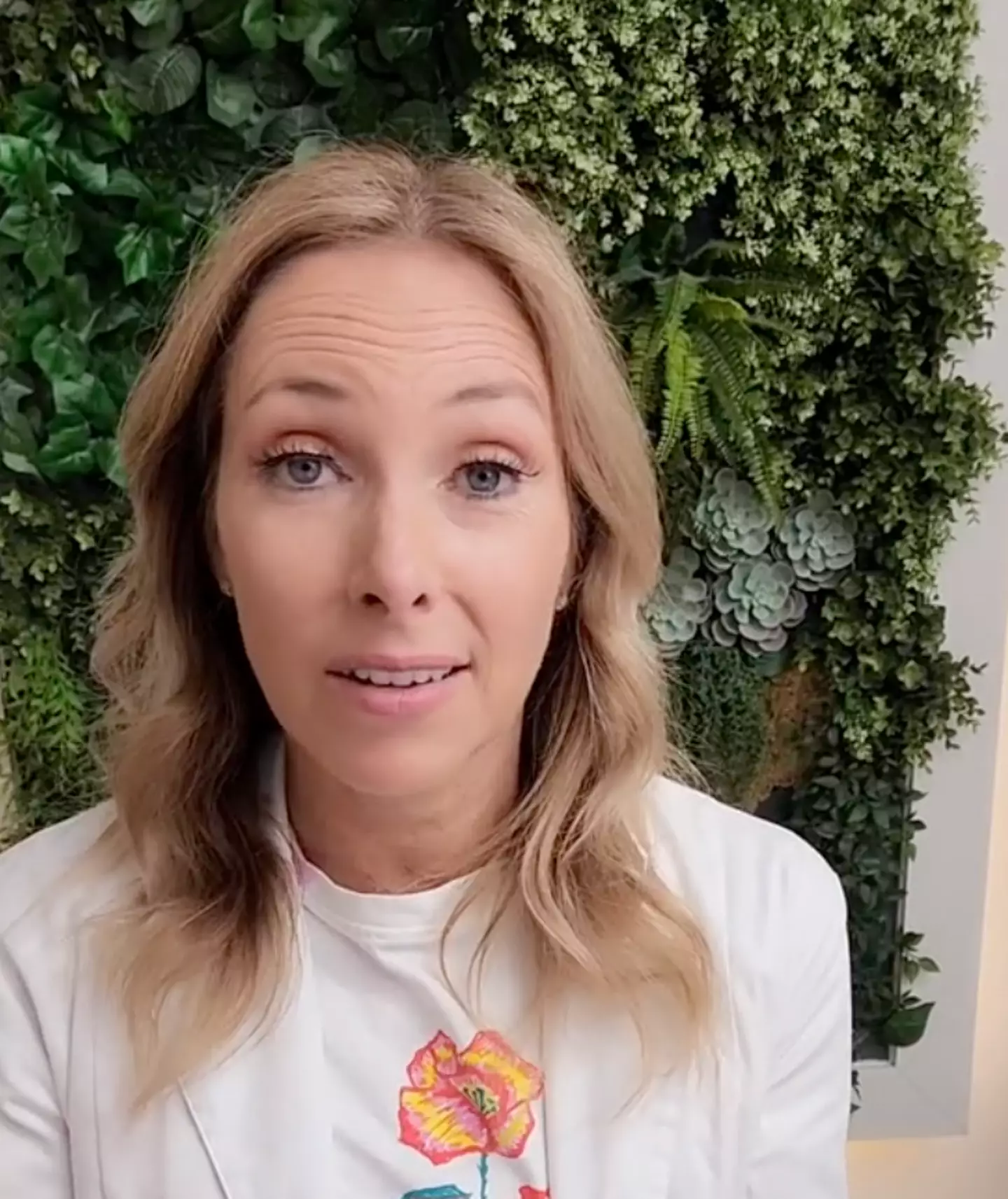
Don’t hold your poo in, the doctor says (TikTok/@j9naturally)
Taking to TikTok, the Naturopathic doctor and TV personality told her one million followers: “Never hold in your poop, why?
“Because it can cause constipation and that stool that’s sitting longer in your digestive tract that water is getting removed and can be painful.
“It can also cause haemorrhoids and fissures and that bleeding in that area, which you’re not gonna like.
“So my tips here, when you gotta go, you gotta go.
“I know that the kids don’t like to go at school, adults don’t like to go out in public or at work, but when you get the urge, you gotta go poop.”
Dr Zoe Williams, an NHS GP working with Activia, also told the Huffington Post: “Our bodies need to do their thing, and regardless of the reason you’re ‘holding in’ your poo, it’s not good for your gut.
Meanwhile, a recent study found the shocking link between constipation and major adverse cardiac events (MACE).
For those unaware, the NHS say that constipation in adults occurs when there are changes to how you poo and how often you poo.
Although it is usually treatable with a diet and lifestyle changes, researchers from Monash University have warned that it could cause heart attacks, strokes and heart failure.
After taking a look at what causes MACE, researchers from Monash University found 23,814 cases of it being linked to constipation.
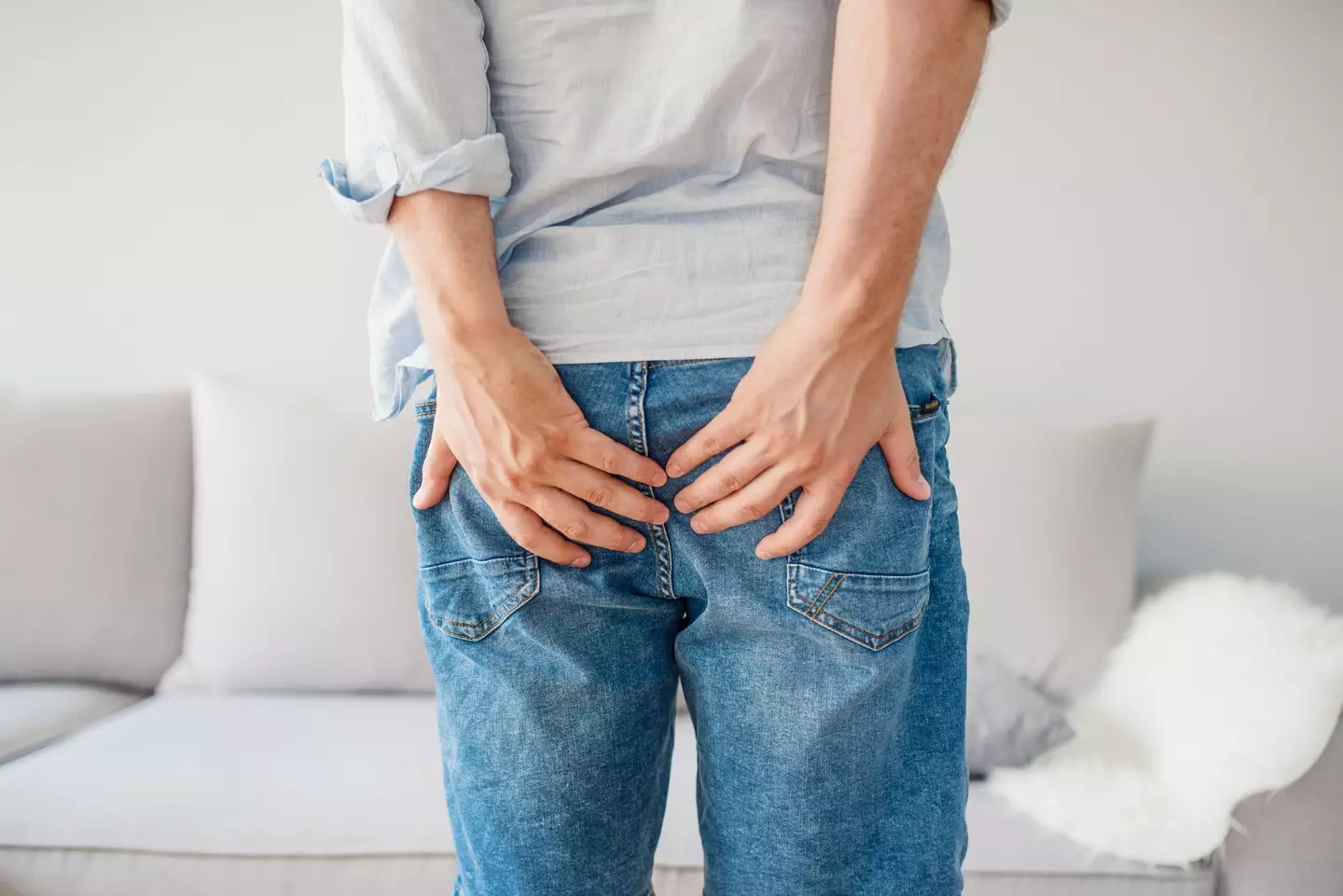
The findings showed that those suffering from constipation were twice as likely to have a major cardiac event, compared to those without it.
“Our study suggests that constipation, a common yet often overlooked health issue, may be a significant contributor to cardiovascular disease,” said
“Traditional cardiovascular risk factors such as high blood pressure, obesity, and smoking have long been recognised as key drivers of heart disease.
“However, these factors alone do not fully explain the occurrence of major cardiac events.”
What are the signs of constipation?
- not pooing at least three times during the last week
- poo is unusually large or small, dry, hard or lumpy
- you are straining when you poo
What causes constipation?
- lack of fibre
- lack of fluids
- spending too much time sat down
- not exercising
- not going to the toilet when you need to
- a change in diet
- a side effect of medication
- stress, anxiety or depression
How can you treat constipation?
- eat a fibre-rich diet with wholegrains, fruit and vegetables
- avoid alcohol
- drink plenty of water
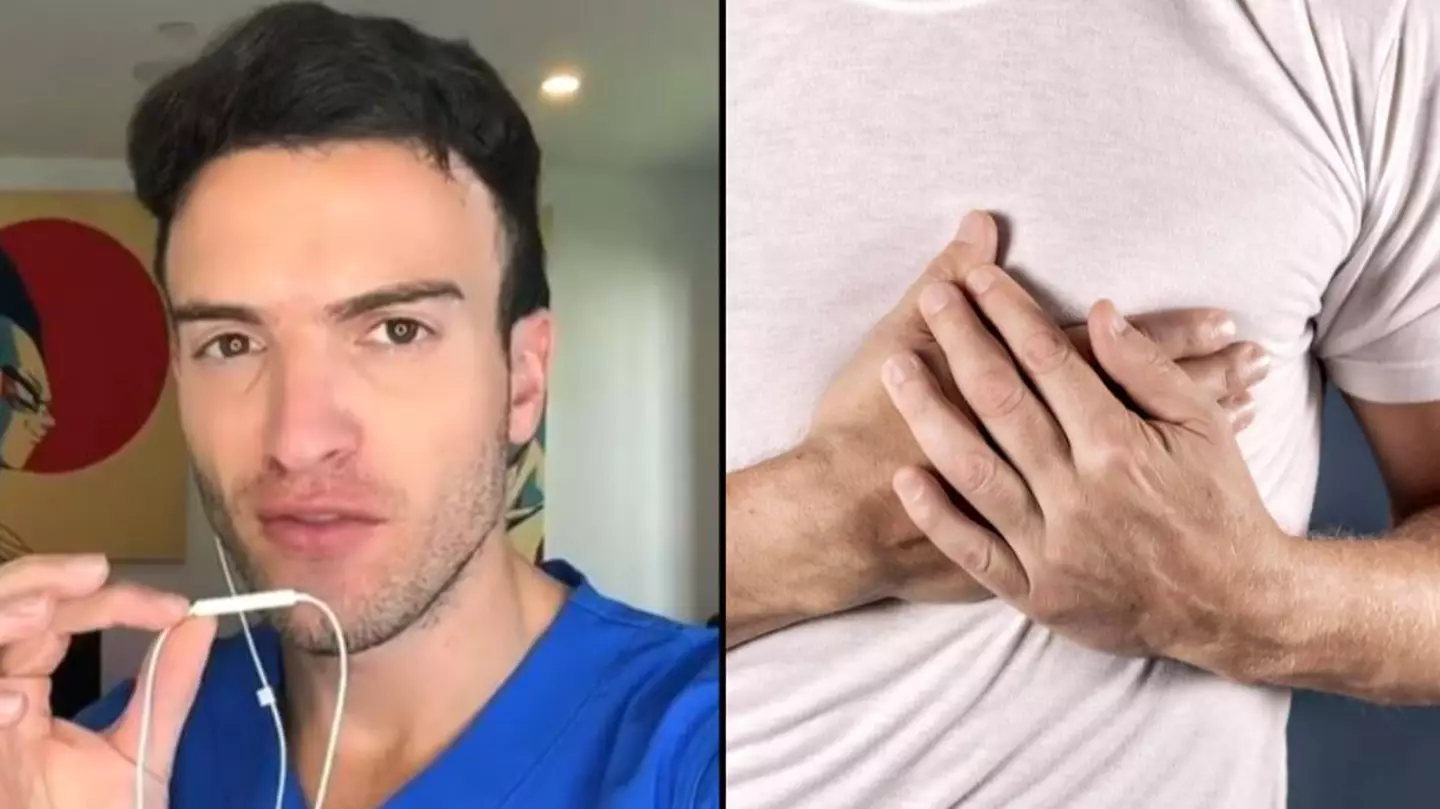
Getting a sharp pain in your chest can make you think you’re suffering from something serious and have you wondering if you should rush to A&E.
However, a doctor on TikTok has now finally explained that not all chest pains require a trip to the emergency department, and that those random pains a lot of people sometimes get more common and more harmless than you think. You can see the explanation here:
However the doctor is here with all the answers.
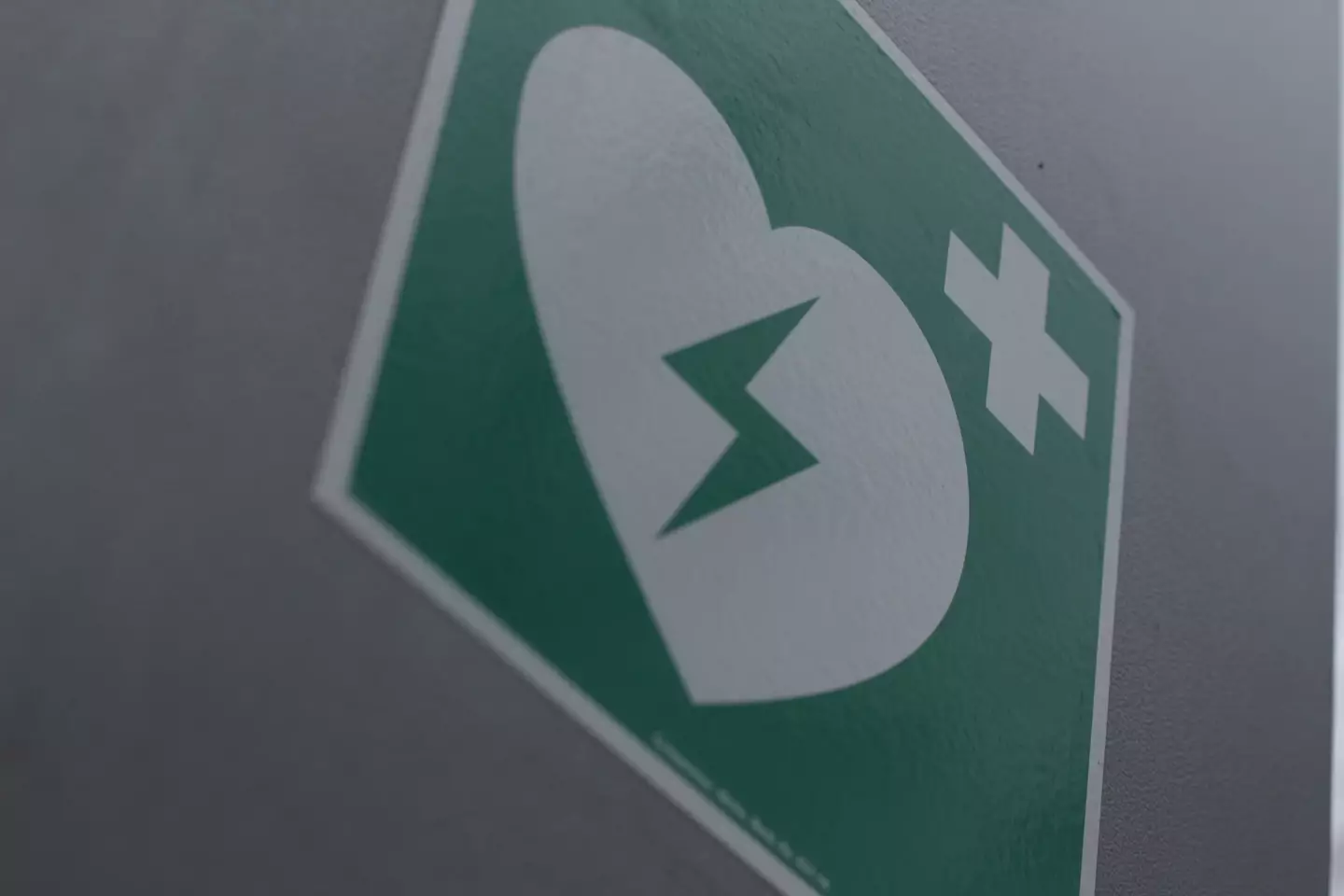
Pexels
Speaking to the camera, the doctor explained: “If you’ve ever had random chest pain, listen closely. Not all chest pain comes from the heart. In fact, one of the most common causes of chest pain is something known as pre-cordial catch syndrome.
“This is usually described as sudden onset sharp chest pain that’s located in this area. Now this pain lasts for a few seconds, two minutes and it’s worse with deep breathing.
“And this is believed to be due to a pinched nerve that runs across a chest wall and is not life threatening.”
TikTok users have had their eyes opened by the doctor.

TikTok/Life Of A Doctor
Another said: “I thought I was dying for YEARS.”
“I honestly thought I was dying. Thanks bro,” wrote another.
One user even joked: “I’ll probably die from a heart attack because I think it’s a pinched nerve again.”
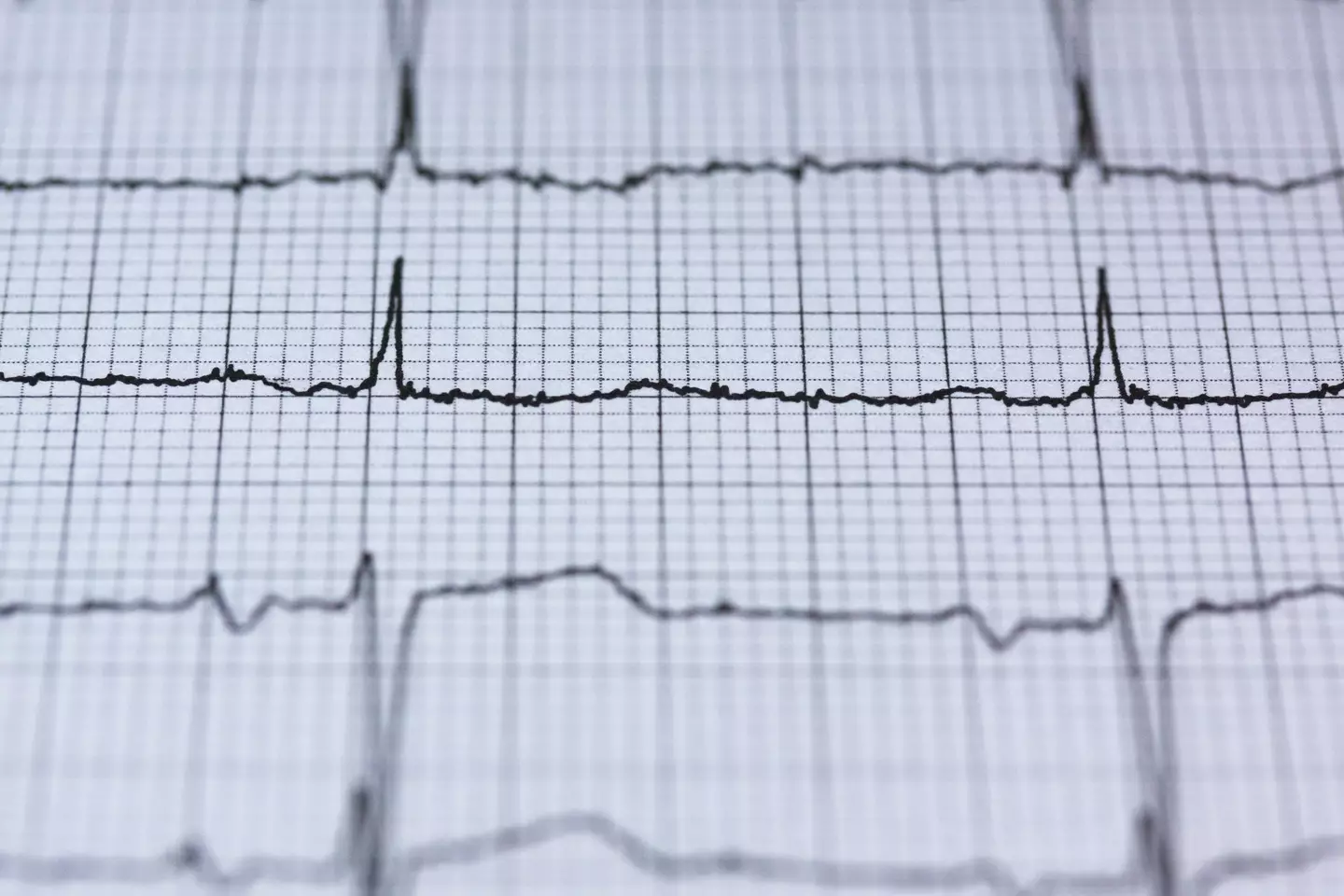
Pexels
Of course, if your chest pains don’t go away, you should seek medical advice.
Elsewhere on TikTok, health advice has needed to be issued after the latest TikTok trend has seen a mass number of users strip off in public and point their private bits up towards the sun in order to increase the strength of those body parts.
Yes, you read that right.
Experts have now vehemently advised against this, adding that as with any overexposure to the sun, it opens you up to an increased risk of skin cancer. 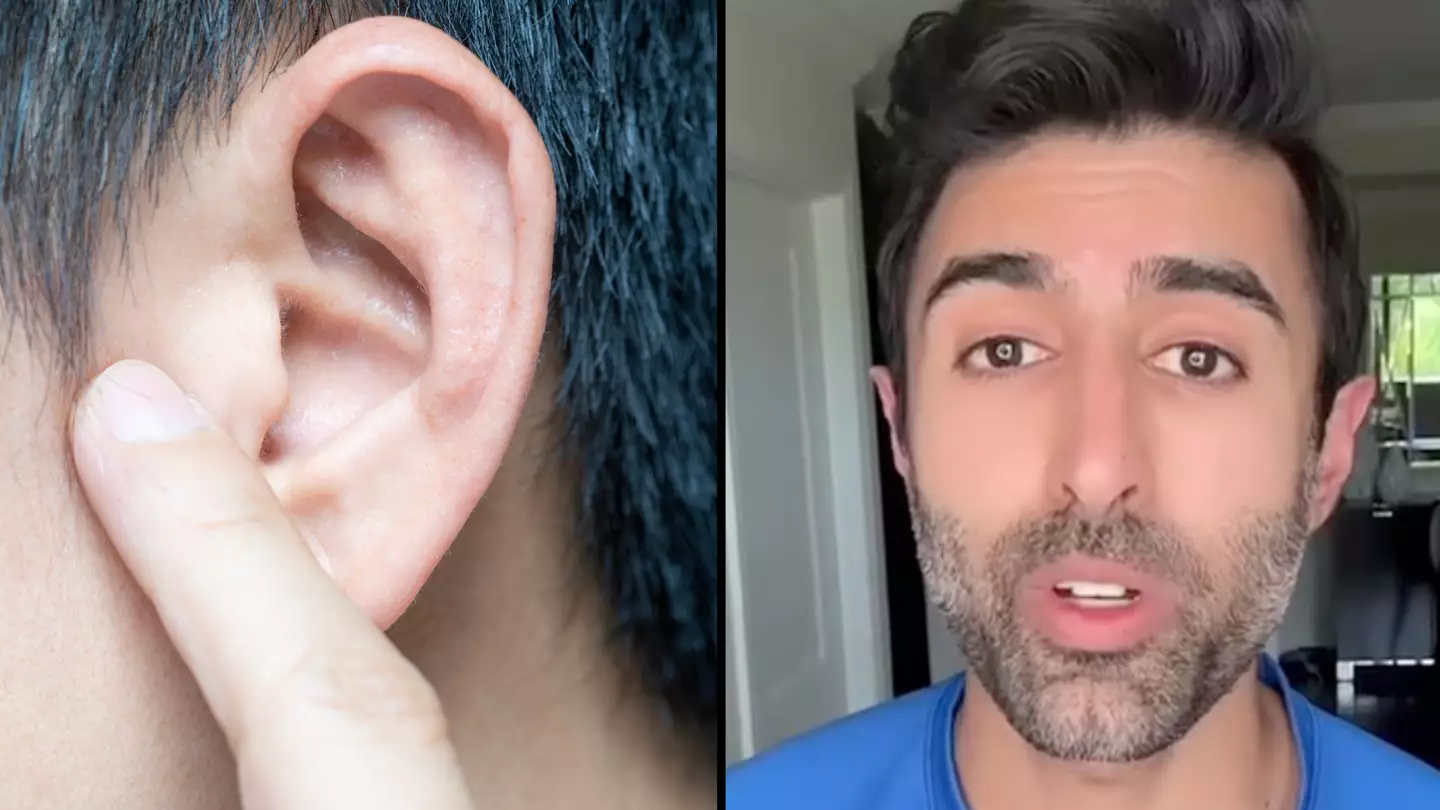 Doctor explains why you sometimes get random ringing in your ear and ways to stop it happening
Doctor explains why you sometimes get random ringing in your ear and ways to stop it happening
It often comes out of nowhere and can feel quite alarming, at first.
You’ll be doing the dishes or watching TV, minding your own business, then it hits you all of a sudden.
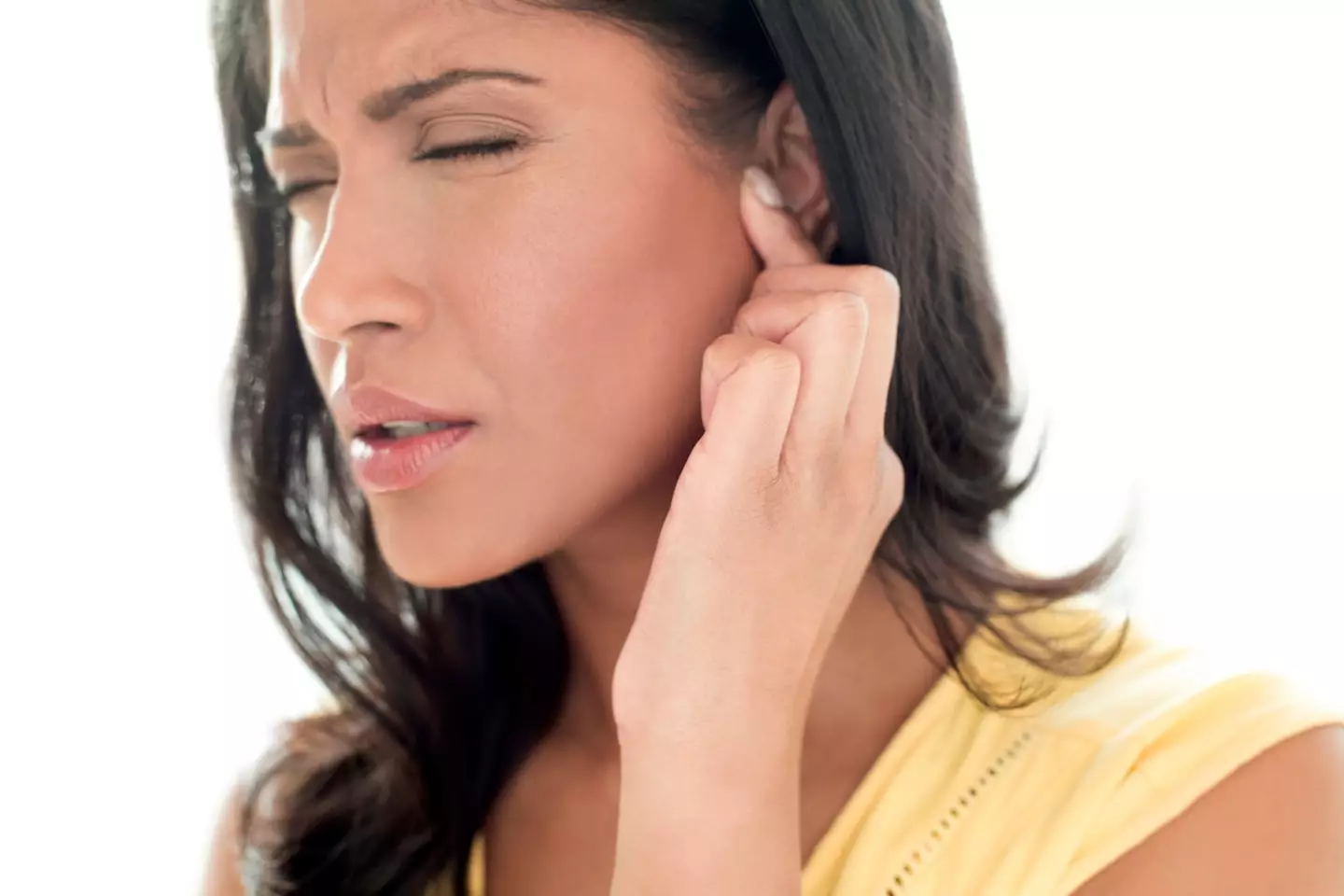
75 percent of people experience this at least once. (Getty Stock Images)
Dr Kunal Sood, MD, who practices in the US, has a significant following on social media and was responding to a viral clip with the caption: “When you’re going about your business and your ear does that thing.”
On what the ringing noise probably is, he said: “This is the human equivalent of going offline.
“Thankfully, it does not mean something bad is going on, and it is pretty common with over 75 percent of people experiencing this at some point in their life.”
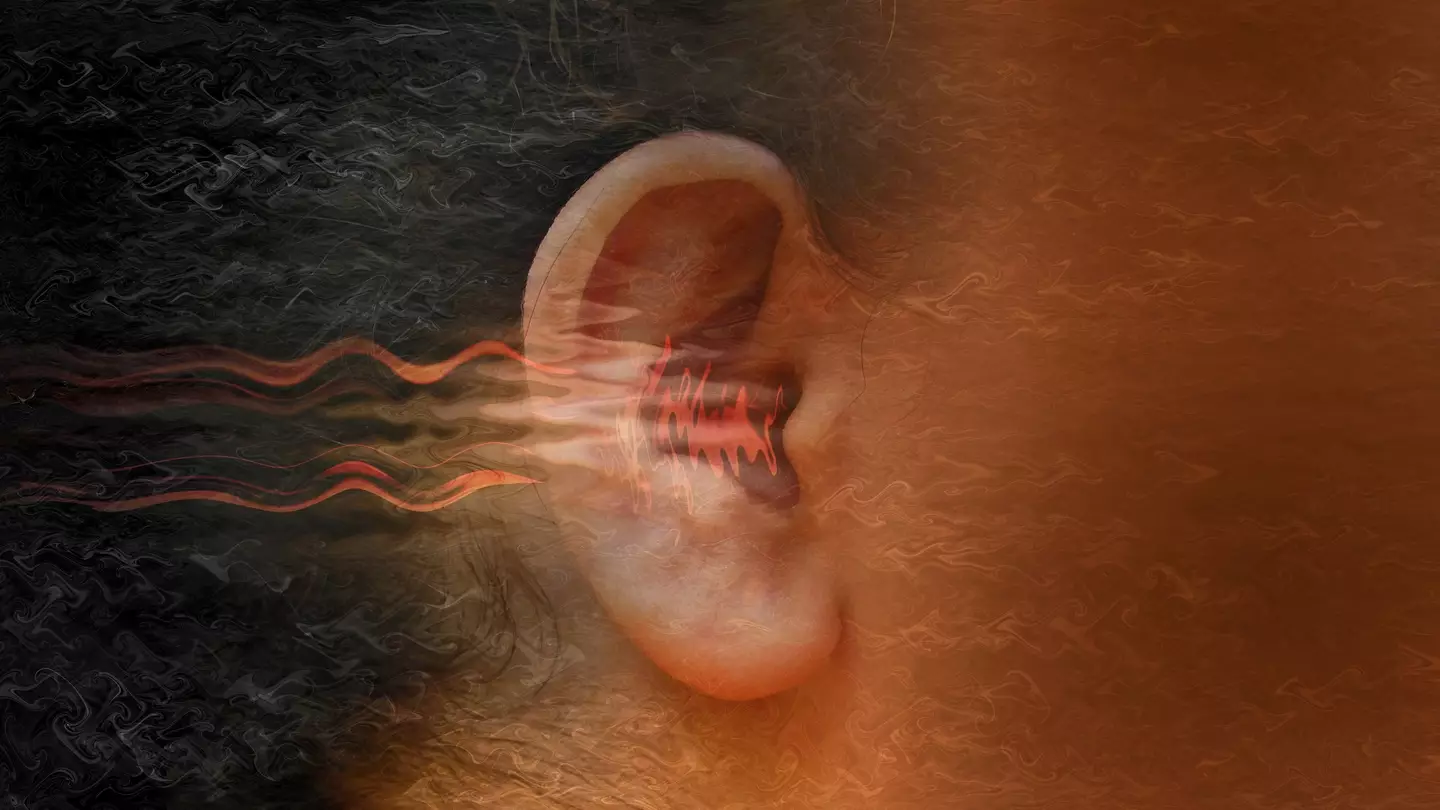
That annoying noise we sometimes get in our ear has been explained. (Getty Stock Images)
According to the doctor, you might think of it as a ‘random twitching of your ear’, however, sleep deprivation, stress, caffeine, or infection are all possible risk factors of SBUTT.
“But if it occurs more frequently, or for a longer duration, it could be a sign of something more serious. At that point, please see your doctor.”
People in the comments were stunned, as one person wrote: “This whole time I thought it was my spirit guides trying to get my attention.”
Another quipped: “My brain must be rebooting often lol.”
While someone else said: “I’ve dealt with it at least once or twice in the past year, and in my case it was due to severe stress.
“Along with it, I also had what felt like my ear drum vibrating intensely.
How to check if you have tinnitus
According to the NHS, tinnitus can sound like a ringing or hissing noise in the ear. It also can cause your ear to throb.
See a GP if:
- symptoms are regular or are getting worse
- tinnitus is bothering youth the point that it’s affecting your sleep or concentration
How to cope with tinnitus
- think about taking up yoga to relax
- try to cut down on caffeine and come up with a more effective sleep routine that works for you
- try to avoid stress or loud background noises when you can
- talk to others who are going through the same thing
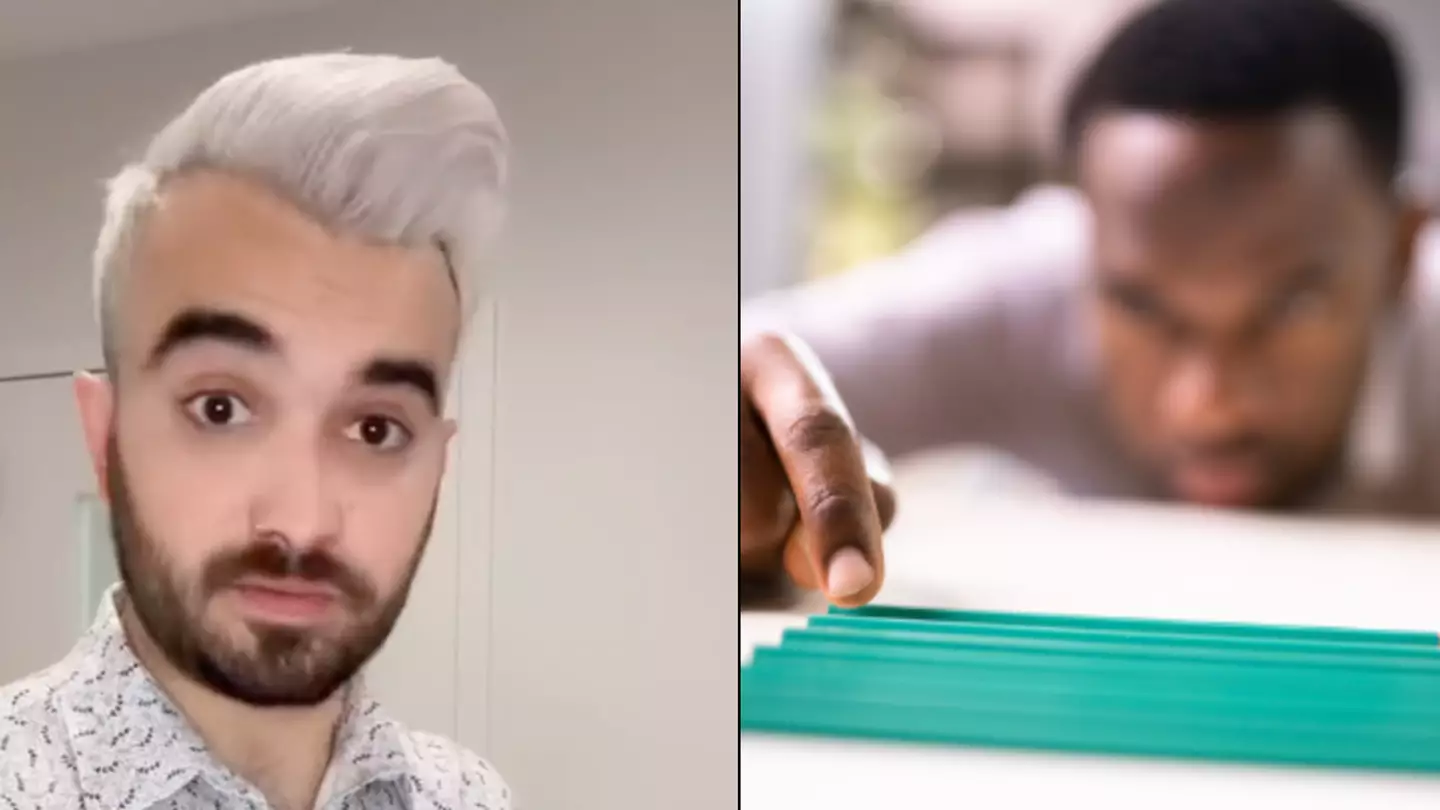
Dr Gaddi (@dr.gaddi) from Chicago, US, has taken to TikTok to explain why people often get confused with the two conditions.
Both health disorders are similar – yet very different – at the same time.

OCD is a mental health condition where a person has obsessive thoughts and compulsive behaviours, whereas OCPD is more of a personality disorder that focuses more on perfectionism.
According to OCD UK, obsessive compulsive disorder is considered an anxiety disorder, while obsessive compulsive personality disorder is instead a personality disorder – though the charity notes it is possible that the two conditions can co-exist.
“You DON’T have OCD, you have OCPD (obsessive compulsive personality disorder),” Dr Gaddi begins in his video before outlying eight signs of OCPD.
Very organised
People who are ‘very focused on organisation, rules, order, lists and schedules’ will generally have OCPD.
Advert
If ‘colour coordination is your passion’ then this is probably you.
Struggle to ‘delegate work’
Those who struggle with the idea of ‘delegating work’ because they want everything done in their way and will often refuse to adopt another method could also have the disorder.
Striving for perfection
Those with OCPD will strive for perfection in everything they do – but, according to a 2023 study, that rigid perfectionism can lead to things being missed, such as deadlines.

You can have OCD and OCPD at the same time (Getty Stock Images)
Productivity as a priority
Working hard and being ‘productive’ will always be a priority above everything else.
Saving money
You’re saving money for a rainy day, which is probably a good thing in today’s climate.
Overvaluing your ‘ethics and morality’
Dr Gaddi says your ‘values, ethics and morality’ will also take over in every situation.
Unable to discard certain items
Similar to hoarding, the psychiatrist warns that if you find it ‘difficult to discard worthless objects (with no sentimental value)’, then it could be an indicator of OCPD.
Being described as ‘stubborn’
Lastly, if others may describe you as ‘rigid’ or ‘stubborn’, then Dr Gaddi thinks you could be suffering with the condition.
Expanding on the differences, Dr Gaddi added: “OCPD is personality disorder. Obsessions and compulsions are not necessarily present and the person may be just fine with their personality traits.”
With regards to possible treatments, the doctor said: “Psychotherapy is very important for both.”
OCD UK note: “It’s not easy to treat OCPD, even when the person is prepared to seek help, but if the person is willing to seek and accept help, then treatment can be effective.
“It has been suggested that sometimes those with OCPD may respond better to treatment because of rigid adherence to therapy tasks set by the therapist.
“The treatments for OCPD are very similar to those for OCD, with the treatment found to be the most effective being a talking therapy called Cognitive Behavioural Therapy (CBT).
“Some people find they also need the additional support of medications.”
